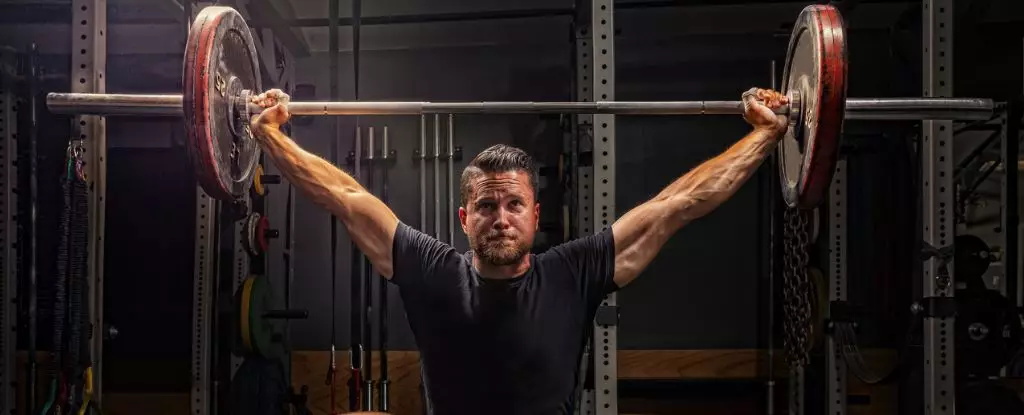The world of bodybuilding has always been a spectacle of physical prowess, but the year 2021 shook the community to its core, witnessing a tragic cascade of over two dozen sudden deaths among professional athletes. The alarming tally included the shocking loss of individuals as young as 27. This shocking trend raises critical questions about the hidden dangers lurking behind the muscular façades of elite bodybuilders. While conventional wisdom suggests that elite athletes enjoy longer lifespans compared to the general populace, the grim reality of premature deaths, particularly among bodybuilders, paints a chilling counter-narrative that cannot be brushed aside.
The Research Unveils Stark Truths
A recent comprehensive study helmed by researchers at the University of Padova confronted this unsettling reality head-on. In what marks a pivotal investigation into the alarming risk of sudden deaths among male bodybuilders, this research meticulously analyzed a cohort of over 20,000 bodybuilders over an average span of eight years. The findings were nothing short of harrowing, as the study recorded 73 fatalities within this group, predominantly driven by sudden heart failures — 46 incidences, to be precise. While the statistical risk may appear low for bodybuilders in general, the data reveals a disconcerting trend; elite professional bodybuilders face a staggering 14-fold greater risk of sudden heart failures compared to their amateur counterparts. This stark contrast underscores how the intensifying demands of the sport could correlate with proportional increases in mortality risks.
Mr. Olympia: A Glimpse into a Troubling Pattern
Drilling down into the specifics of the sport brings even more haunting insights. Among contestants in the most prestigious bodybuilding competition — the Mr. Olympia ‘open’ category — the statistics are alarmingly grave. Out of just 100 elite competitors, seven died abruptly, with five of those attributed to sudden cardiac issues. With a mean age of just 36 at the time of these deaths, the gravity of the situation becomes more pronounced. The statistical outcomes serve as a chilling reminder that the road to victory may be paved with perilous sacrifices, raising flags not only for athletes but also for medical professionals and sports organizations alike.
Underlying Causes: A Combination of Factors
The analysis led by Marco Vecchiato, an astute scholar in sports medicine, unearths the role of numerous compounding factors influencing cardiovascular health among bodybuilders. Extreme training regimens, rigid dietary restrictions, and a propensity for performance-enhancing drugs are cited as substantial contributors to the heightened risk that many professional bodybuilders face. The impact on cardiovascular health is not merely conjectural; autopsies — though limited to a mere 10% of sudden deaths — reveal disturbing patterns of left ventricular thickening and significant increases in heart mass, aligned with previous studies indicating that elite bodybuilders often possess hearts up to 74% heavier than average.
The Call to Action
Given the concerning outcomes illuminated by this research, the authors assert the undeniable necessity for developing preventative measures aimed at curbing the risk of sudden cardiac deaths in bodybuilders. Critical recommendations include stringent guidelines for medical evaluations and the implementation of readily available automatic external defibrillators in competitive settings. This appeals to a broader awareness of health risks that are often overlooked in the relentless pursuit of physical perfection.
The Ethical Implications of Bodybuilding Culture
As bodybuilding increasingly captures public imagination and becomes a lucrative industry, it shrouds its practitioners in an ethos of endurance and relentless ambition. Yet, the culture within elite bodybuilding champions extremes that can manifest in dire health consequences. The relentless pursuit of an ideal physique, often glorified through social media and competitive platforms, risks normalizing dangerous practices that compromise rather than enhance well-being. It is essential for athletes, coaches, and fans to critically reconsider what constitutes success in this sport. A shift towards prioritizing health over aesthetic extremes is not just beneficial; it’s essential for safeguarding the lives of those committed to the pursuit of muscle excellence.
The bodybuilding community stands at a critical crossroad, where the aspirations for greatness must reconcile with the truth that some pursuits come at an unacceptable price. As we bear witness to the consequences of prevailing norms, a revaluation of priorities becomes vital, underscoring the fact that in the quest for physical excellence, one’s health must never be sacrificed on the altar of ambition.


Leave a Reply